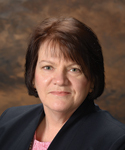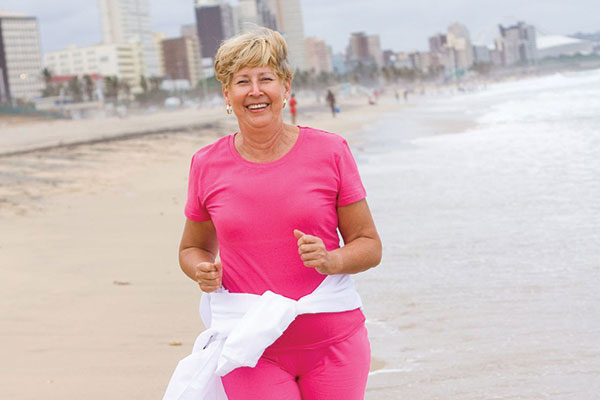Nourishing Your Emotional Health during Breast Cancer
by Linda M. Sutton, MD, and Donette W. Vicente, MD
There’s no doubt about it; a cancer diagnosis – of any kind – has a way of challenging your emotional well-being. For breast cancer survivors, in particular, the emotional journey can feel like a roller coaster, with many expected highs and lows, as well as unexpected twists and turns. Your sense of well-being can be threatened by sadness, fear, and grief, emotions that at times can seem overwhelming in the midst of a whirlwind of tests, appointments, and treatments. During this time, it’s important to remember that your emotional health requires as much care and nourishment as your physical health.
Knowledge is Power
After a breast cancer diagnosis, information comes at a very fast pace. The number of things you need to understand – and make decisions about – can be daunting. But knowledge is truly power. And finding your voice can be the first step in gaining control. Don’t be afraid to speak up.
Cancer care comes with its own language, so don’t feel embarrassed if something isn’t clear. Ask as many questions as you need to gain a full understanding, even if it’s the same question multiple times. Asking questions and getting answers can help ease the anxiety that naturally comes with a breast cancer diagnosis.
Writing to Heal
Writing can help keep you centered during these emotionally tumultuous times. By creating a journal, you create a safe space for your fears and concerns, a forum where you can give voice to your thoughts, without judgement. Journaling may also become a vehicle by which you can record your goals, track your progress, and note achievements.
Both formal and informal meditation can allow us to understand and redirect many of our negative emotions before they become overwhelming.
The Healing Power of Movement
There are few things in life as powerful as exercise. And extreme exertion is not a prerequisite to seeing benefits. A short walk around the neighborhood can offer a boost to both your physical and mental health. Likewise, practicing gentle yoga (at home or in a studio) may help you relax and focus, while also providing physical benefits. Now more than ever, it is important to make time in your schedule for physical activity.
Quiet Moments of Reflection
Both formal and informal meditation can allow us to understand and redirect many of our negative emotions before they become overwhelming. Using this downtime for other activities, such as reading, can also offer a mental time-out. While going through cancer treatment, there is always a lot of waiting – waiting for test results, waiting for your therapist, even waiting for chemotherapy to start. Once you become an avid reader, it’s harder to get stuck in waiting mode. Plus, many people take comfort in reading inspirational stories by and about other cancer survivors.
Your Support System
Knowing that you are not alone on this journey is vital to your emotional well-being. Loved ones, whether they be family or friends, can help you manage everyday tasks and offer encouragement. Not only does this take away some of those external stressors, but it also strengthens your social network. Believe it or not, your supporters welcome the opportunity to do something – anything – for you during this time. While you may perceive handing off chores to others as a burden to them, often those around you can feel helpless when they’re not pitching in and actually want to do more.
You may also find it helpful to reach out to other survivors. A support group can connect you with survivors who have undergone a similar experience. Connecting with others has become much easier over time. Information and support are now widely available online from many reputable organizations.
In addition, cancer centers offer access to a variety of resources on things like stress management, nutrition, and financial concerns. Your care team can also connect you with a professional counselor to help you cope with the emotional impact of breast cancer. Keep in mind that, when it comes to nourishing your emotional health, not all coping methods work the same for everyone. The most important thing is to implement the strategies that work best for you.

Dr. Linda Sutton is the medical director of the Duke Cancer Network and associate professor of Medicine at Duke University School of Medicine in Durham, NC.

Dr. Donette Vicente is a hematologist/medical oncologist with the Duke Cancer Network and Clinical Associate at the Duke University Department of Medicine.
This article was published in Coping® with Cancer magazine, May/June 2017.


